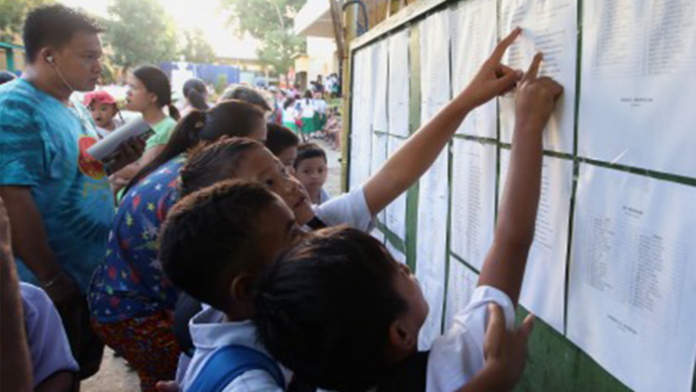The World Bank apologized Thursday to the Philippine government over the “inadvertent” release of a report about the allegedly poor learning results among Filipino students.
In a statement uploaded on its official website, the World Bank acknowledged that its report titled “Improving Student Learning Outcomes and Well-Being in the Philippines: What are International Assessments Telling Us? (Vol.2): Synthesis Report Presentation” was published sans any inputs from the Department of Education (DepEd).
“We deeply regret that the report on education was inadvertently published earlier than scheduled and before the Department of Education had enough chance to provide inputs. This was an oversight on our part, and we conveyed our personal apologies in our communication with the government,” it said.
The World Bank said the report was already “temporarily” removed from its website.
“Recognizing the inadvertent release of the report, we have taken steps to temporarily remove it from the website,” the World Bank said.
The statement came after Education Secretary Leonor Briones on Monday demanded a public apology from the World Bank for releasing an “outdated” and “insulting” report on the supposedly poor education quality in the Philippines.
The World Bank said it has reached out to Briones for a dialogue with DepEd with regard to the “opportunities and challenges” in the Philippines’ education sector.
“We are aware of the Department’s various efforts and programs to address the challenge of education quality,” it said. “We agree with the Department that the issue of quality has a long historical context, and support its demonstrated commitment to resolve it decisively.”
The World Bank report said around 80 percent of Filipino students fall below the minimum proficiency levels as “they do not know what they should know in school.”
Its report was based on the three assessments participated by the Philippines, including the Program for International Student Assessment (Pisa) in 2018, the Trends in International Mathematics and Science Study (TIMSS) in 2019, and the first cycle of the Southeast Asia Primary Learning Metrics (SEA-PLM) in 2019.
The three global assessments, the World Bank said, showed that only 10 to 20 percent of Grade 4, 5, and 9 students in the Philippines posted scores “at or above minimum proficiency.”
The World Bank also said there is a “crisis” in Philippine education “which started pre-Covid-19 (coronavirus disease 2019)” and “have been made worse” by the coronavirus pandemic.
As of press time, the World Bank’s report on Philippine education is “being processed or is not available.”


